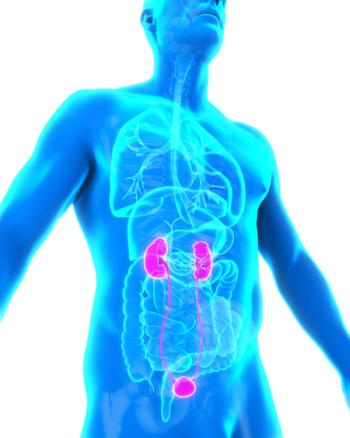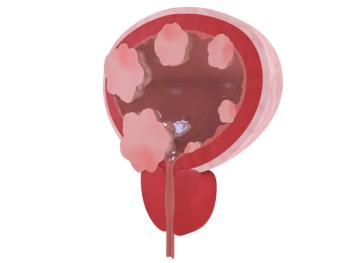
Researching the feasibility of consolidating extensive information into a unified cancer database is the “tip of the iceberg”, said Leila Tchelebi, MD.

Your AI-Trained Oncology Knowledge Connection!


Russ Conroy is an Associate Editor for CancerNetwork. He grew up in Hillsborough, New Jersey, and graduated from Rutgers University-New Brunswick in 2022.
On the weekends, he likes to unwind by playing video games with friends, tailgating at Rutgers football games with his family, or building his music collection with a visit to Princeton Record Exchange.

Researching the feasibility of consolidating extensive information into a unified cancer database is the “tip of the iceberg”, said Leila Tchelebi, MD.

Trials slated for presentation at the 2025 ESMO Congress may reveal practice-changing data across different breast and lung cancer populations.

Data from the FRUSICA-2 trial may support fruquintinib/sintilimab as a “valuable” option for patients with advanced renal cell carcinoma.

Data from the AMPLITUDE trial may support widespread genomic testing at diagnosis to inform targeted therapy strategies for those with CSPC.

Investigators are currently assessing ADCE-D01 among those with metastatic and/or unresectable soft tissue sarcoma in the phase 1/2 ADCElerate1 trial.

Oncotype DX 21-gene recurrence scores may help select certain patients who are suitable to omit radiotherapy for early-stage breast cancer.

Data support the intravesical mitomycin solution’s role as an innovative option for those with recurrent, low-grade, intermediate-risk NMIBC.

Twice-daily radiotherapy prolongs survival vs once-daily radiation among those with LS-SCLC, even with the incorporation of immunotherapy.

Pathologists should try to educate oncologists about the sensitivity and specificity of assays to help optimize care plans, said David Rimm, MD, PhD.

Data from the phase 3 IMforte trial support the FDA approval of maintenance lurbinectedin plus atezolizumab in extensive-stage small cell lung cancer.

Data from the CADENZA trial support the application for pivekimab sunirine as a treatment for those with blastic plasmacytoid dendritic cell neoplasms.

Long-term data from the STARS trial affirm stereotactic radiation as a strong alternative to surgery for patients with operable stage I NSCLC.

Treatment with anito-cel shows a predictable and manageable safety profile among those with relapsed/refractory multiple myeloma in the iMMagine-1 trial.

Apalutamide plus stereotactic radiotherapy may be effective for certain patients with recurrent prostate cancer following radical prostatectomy.

An indirect comparison supports continuous therapy with zanubrutinib as a valuable treatment option in treatment-naïve CLL or SLL.

Data from KOMET-001 support ziftomenib as a new potential option for patients with relapsed/refractory NPM1-mutated acute myeloid leukemia.

Data from the phase 3 EMBER-3 trial support the approval of imlunestrant in this breast cancer population.

The frontline treatment algorithm in SCLC is poised to look “radically different” in the upcoming years, according to Anne Chiang, MD, PhD.

Data from the phase 3 evERA trial show a trend toward improved overall survival with giredestrant plus everolimus in this breast cancer population.

Phase 1b/2 BGB-11417-105 trial data showed low rates of high-grade infection and hematologic toxicity with sonrotoclax-based therapy in multiple myeloma.

Data from the TANDEMM trial show enduring responses with concurrent anti-GPRC5D and anti-BCMA therapy in relapsed/refractory multiple myeloma.

Responses observed with the elranatamab-based regimen in the MagnetisMM-6 trial are anticipated to deepen with longer follow-up.

Data from the IDeate-Lung01 trial support the potential role that ifinatamab deruxtecan may play in the management of extensive-stage small cell lung cancer.

Findings from the 2025 World Conference on Lung Cancer reflected key updates in the management of NSCLC, SCLC, and other lung cancer types.

Subgroup data from KEYNOTE-671 support the use of perioperative pembrolizumab in stage II or III non–small cell lung cancer of any clinical nodal status.

The performance of the latest Shield algorithm underwent validation in an expanded cohort of individuals enrolled on the ECLIPSE study.

Data from the AQUILA trial support early intervention with fixed-duration subcutaneous daratumumab for those with high-risk smoldering multiple myeloma.

Patients with recurrent or metastatic cervical cancer in Hong Kong are now eligible to receive treatment with tisotumab vedotin.

Data from KEYNOTE-585 showed that adding pembrolizumab to chemotherapy did not negatively impact health-related quality of life vs placebo/chemotherapy.

Data from the phase 1/2 RAINFOL-01 trial support the agency’s regulatory decision on rinatabart sesutecan in advanced endometrial cancer.